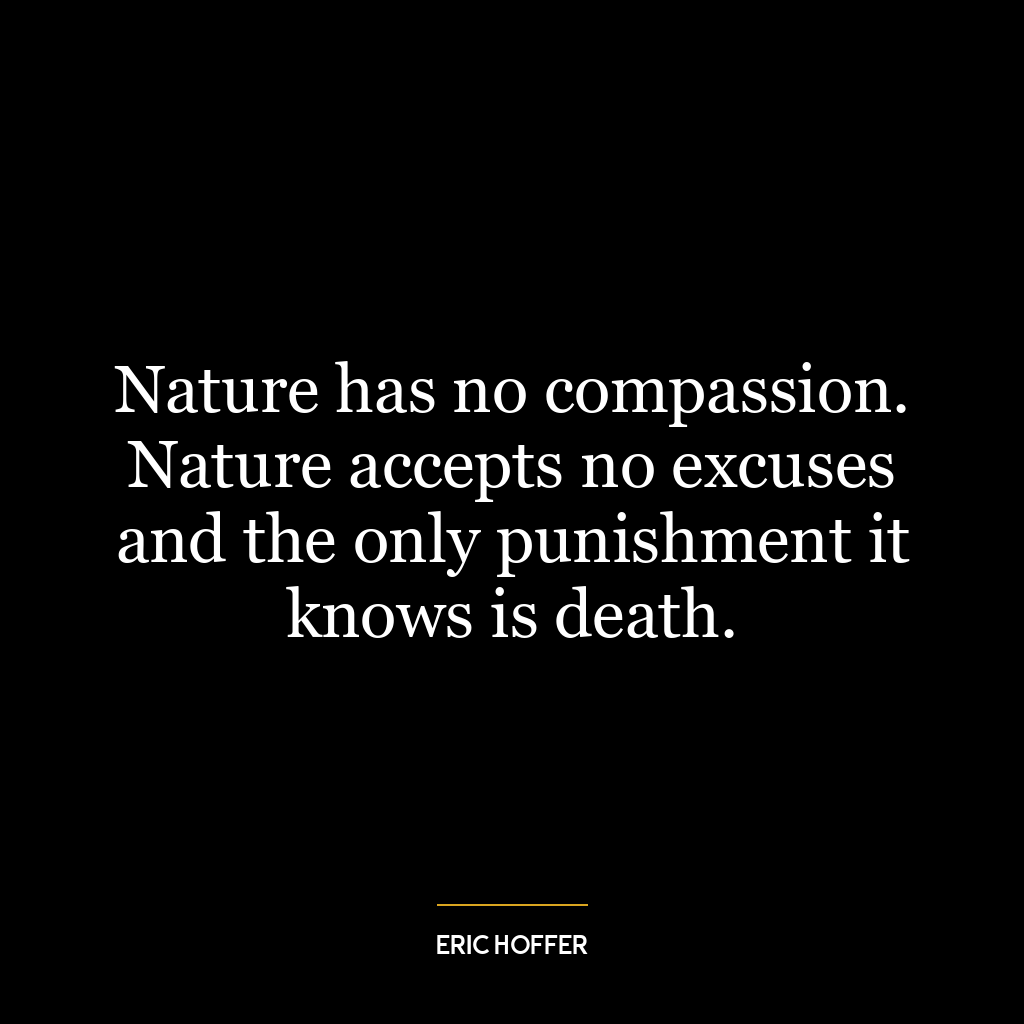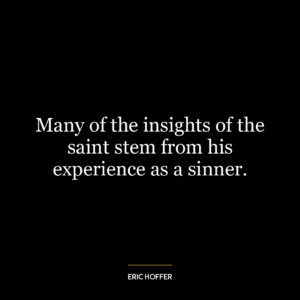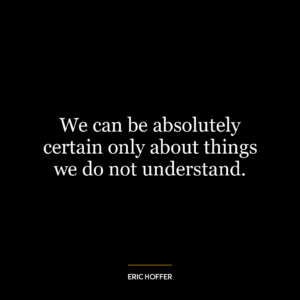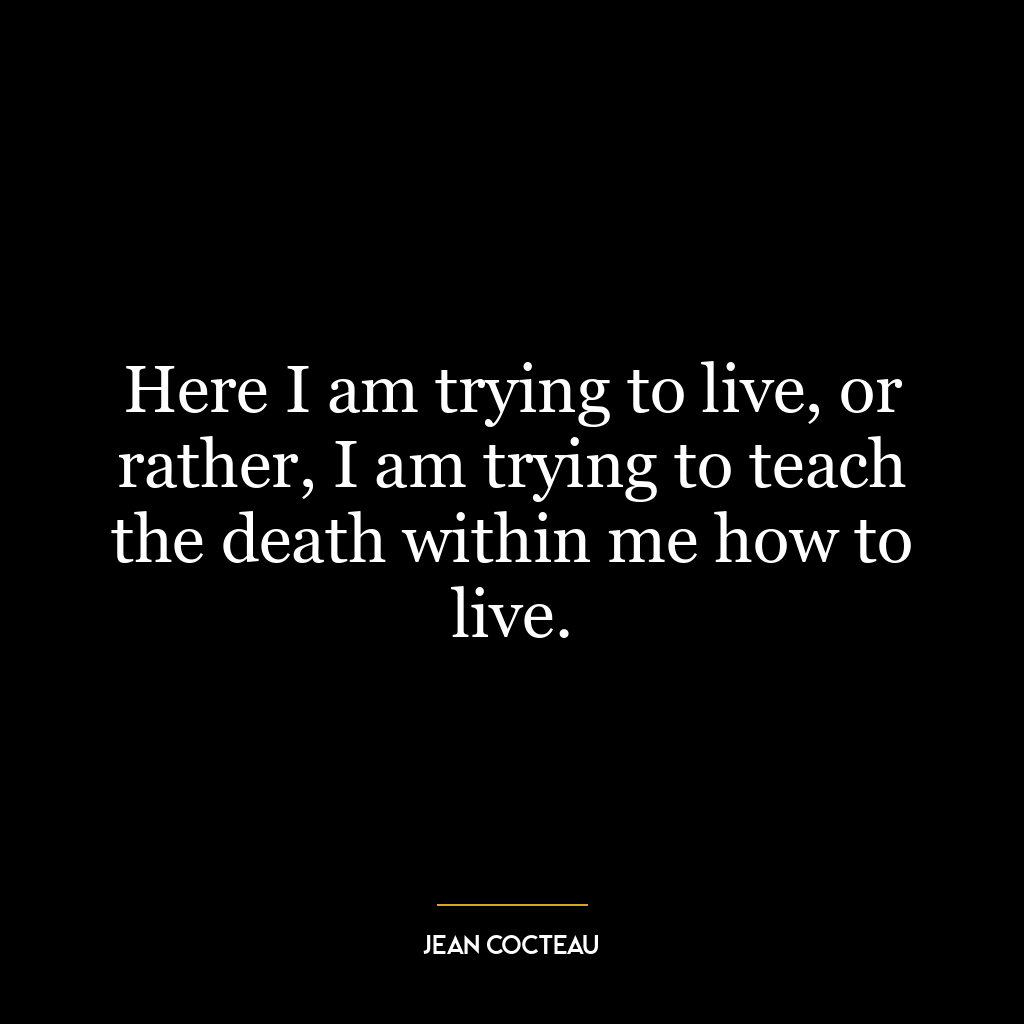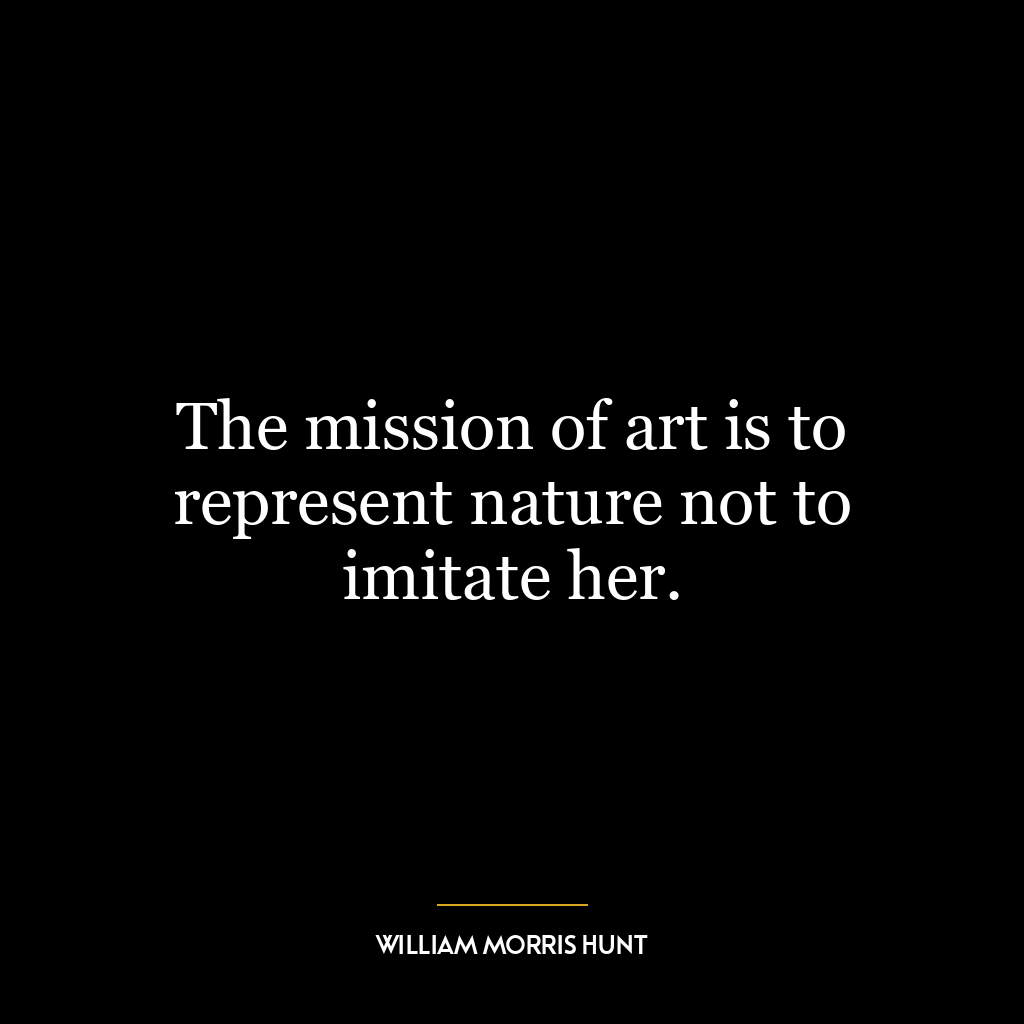Nature has no compassion. Nature accepts no excuses and the only punishment it knows is death.
This quote encapsulates the harsh, indifferent reality of nature. It emphasizes that nature is not a sentient entity capable of compassion or understanding. It operates on its own set of laws and principles, immune to human emotions, excuses or pleas. When it comes to survival, nature is merciless and the only penalty it knows for not adhering to its laws is death.
The phrase “Nature has no compassion” simply means that nature does not have the capacity to feel empathy or sympathy. It doesn’t care if a creature is suffering or in pain. It doesn’t take sides or show favoritism. It treats all organisms the same, regardless of their circumstances.
“Nature accepts no excuses” further underscores this point. In the natural world, there is no room for justification or rationalization. If an organism fails to adapt to its environment, it will not survive. This is not a punishment, but rather a consequence of not being fit enough to survive.
The final part of the quote, “the only punishment it knows is death,” is a stark reminder of the ultimate consequence of not adhering to the laws of nature. It implies that there is no second chance or room for error in nature. If an organism fails to adapt, to find food, to reproduce, or to protect itself, it dies.
Applying this concept to today’s world or personal development, one could interpret it as a call for resilience, adaptability, and accountability. Just as nature doesn’t accept excuses, we too should strive to overcome challenges without making excuses. We should take responsibility for our actions and their outcomes, instead of blaming others or our circumstances.
Moreover, it could be seen as a reminder of our own mortality. Just as nature is indifferent to individual survival, life can be equally harsh and unpredictable. It is a prompt to make the most of our time, to be prepared for adversity, and to value our lives, as the ultimate consequence of not doing so could be metaphorically seen as “death” – perhaps not physical death, but a life devoid of growth, purpose or fulfillment.
In essence, this quote can be a powerful reminder of the importance of resilience, adaptability, accountability, and the value of life. It can motivate us to strive for personal growth, to face challenges head-on, and to live our lives to the fullest.

